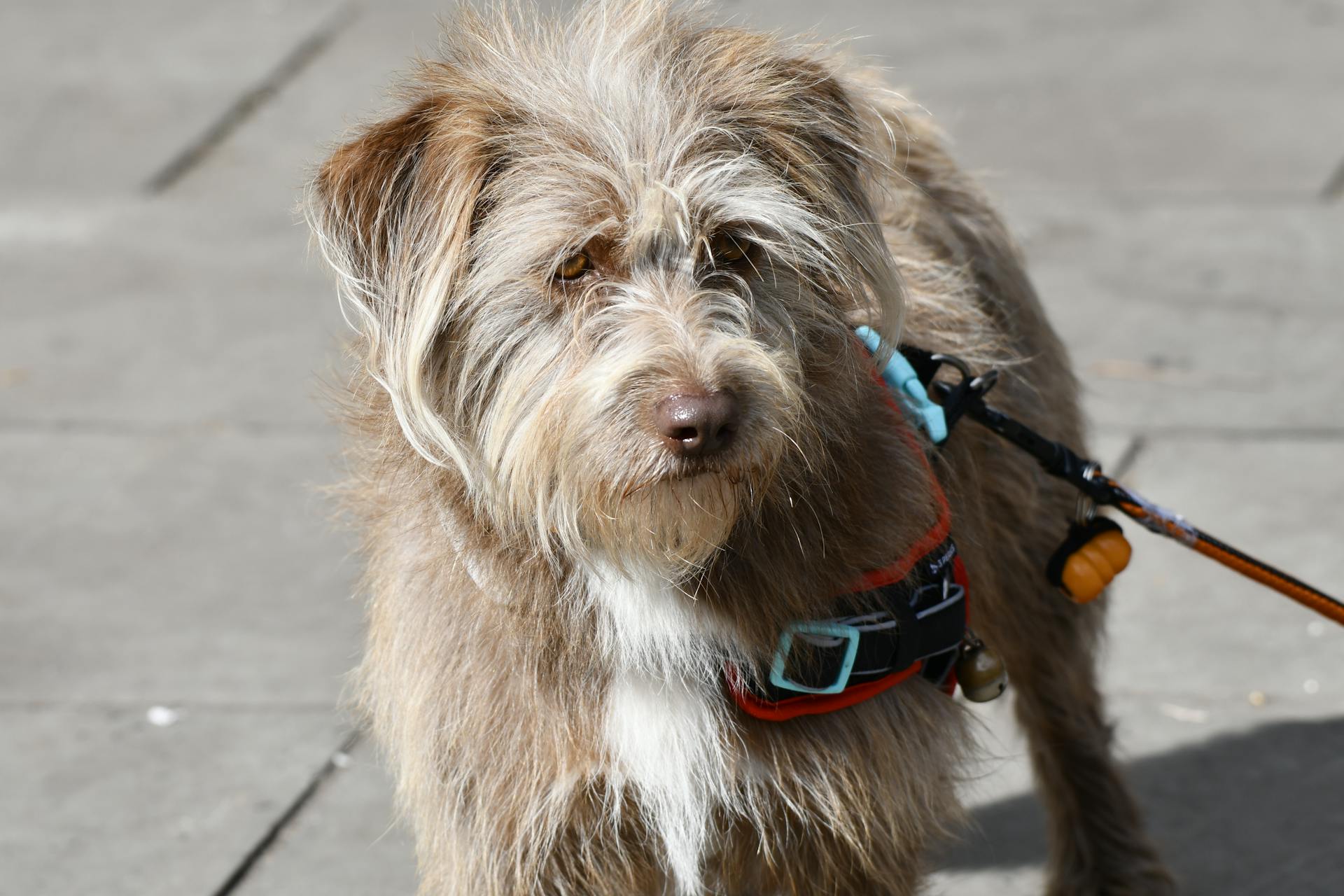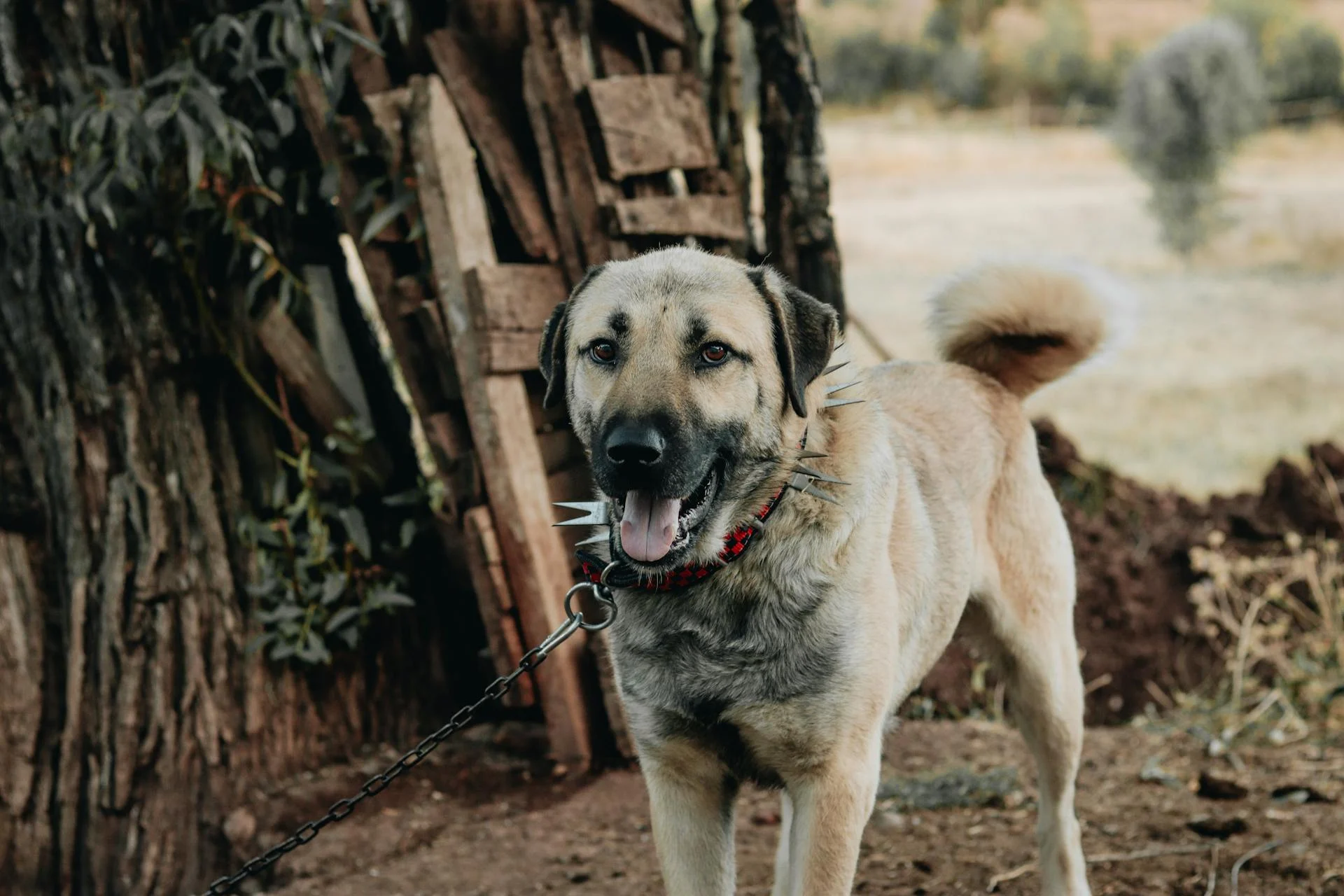
Owning a Dutch Shepherd Mix can be a wonderful experience, but it's essential to understand their unique needs and characteristics. They are highly intelligent and active dogs that require regular exercise and mental stimulation.
To keep your Dutch Shepherd Mix happy and healthy, you'll need to provide at least 1-2 hours of exercise and playtime per day. This can include walks, runs, and playtime in the yard or park.
With their high energy levels, it's no surprise that Dutch Shepherd Mixes are prone to obesity if they don't receive enough physical activity. This is especially true for older dogs, who may need more gentle exercise to maintain their weight.
Their intelligence and trainability make them a great breed for first-time dog owners, but consistency and patience are key when training a Dutch Shepherd Mix.
Physical Characteristics
A Dutch Shepherd mix can make a wonderful companion, and understanding their physical characteristics is a great place to start. They typically reach 21-24 inches in height.
Their weight can range from 40-70 pounds, making them a medium-sized breed. Their coat is thick and weather-resistant, inherited from their parent breeds.
The Dutch Shepherd mix has a muscular build, similar to the German Shepherd, but with their own unique traits. Their ears are large and pointed, standing upright on their wedge-shaped heads.
Their eyes are almond-shaped and typically brown or gold. They have long muzzles and black noses, giving them that signature shepherd look.
A Dutch Shepherd's coat can be one of three types: short-hair, long-hair, or rough-hair, all with a wooly undercoat. Their coat color is often brindle, with shades of silver or gold.
Here's a breakdown of the typical sizes for Dutch Shepherd mixes:
Their tail is long and hangs down with a slight curve when they're relaxed, arcing upwards when they're active. Overall, the Dutch Shepherd mix is a beautiful breed with a unique appearance.
Temperament and Personality
The Dutch Shepherd mix is a high-energy breed that thrives on mental and physical stimulation. They need a job or activity to keep them from becoming destructive and developing unwanted habits.
Their intelligence is off the charts, making them highly trainable and eager to please. With the right training and socialization, they can become excellent companions for active individuals or those with disabilities.
Dutch Shepherds are naturally protective and will alert their humans with a series of barks if anything suspicious is happening. However, they're not naturally aggressive and will only defend their family if necessary.
They're great with other dogs and children, but it's essential to never leave them unsupervised, especially when younger or improperly socialized. Their herding tendencies can kick in, leading to potential problems.
Dutch Shepherds are highly loyal and affectionate to their humans, making them great family pets. However, they can be stubborn and obstinate at times, due to their intelligence and hardy nature.
To keep a Dutch Shepherd happy and well-behaved, they need plenty of exercise, both mentally and physically. A bored Dutch Shepherd can lead to destructive behavior, so it's crucial to keep them engaged and active.
Worth a look: Border Collies vs Australian Shepherd
Health and Care
The Dutch Shepherd mix is generally a healthy breed, but like all breeds, they can be prone to certain health issues. They have a lifespan of 11 to 14 years, and with proper care, they can live a long and happy life.
Their parents' health is crucial, as some breeders may use dogs with questionable health to create crossbreeds. If you're considering getting a Dutch Shepherd mix, look for breed-specific rescues or reputable breeders who prioritize the health of their dogs.
Some potential health issues to watch out for include hip and elbow dysplasia, which can lead to arthritis and joint problems as the dog ages. Long-haired Dutch Shepherds are also at a higher risk of developing thyroid issues due to their genetics. Regular veterinary check-ups and proper care can help prevent or manage these conditions.
Here are some key health issues to be aware of in Dutch Shepherd mixes:
- Hip and elbow dysplasia
- Thyroid problems (more common in long-haired Dutch Shepherds)
- Glaucoma
Proper nutrition is also essential for maintaining your Dutch Shepherd mix's health. Choose a high-quality dog food that supports their development, immune system, and overall well-being.
Health and Conditions
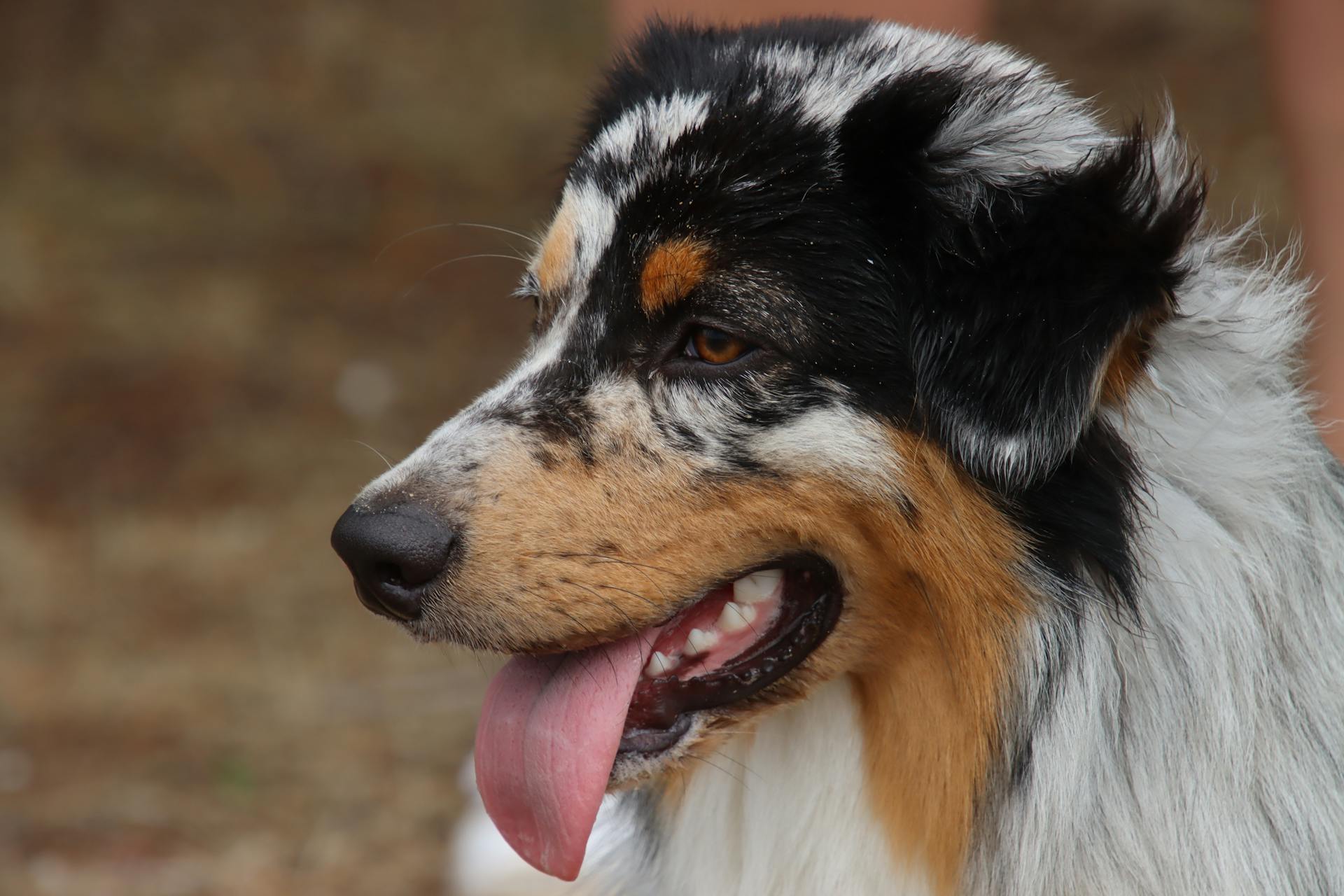
Dutch Shepherds are generally a very healthy breed, with a lifespan of 11-14 years. They're free of many health problems, but there are some instances of hip dysplasia, which can lead to arthritis and joint problems as the dog ages.
Hip dysplasia is more rare in Dutch Shepherds than in similar breeds, such as German Shepherds. It's essential to have your breeder screen and adjust for dysplasia to prevent this issue.
Long-haired Dutch Shepherds have a higher risk of developing thyroid issues due to their genetics. This is something that owners need to be aware of and monitor their dog's health closely.
Dutch Shepherds can also develop a type of glaucoma, but this problem is not as serious in dogs as it can be in humans. Regular veterinary check-ups can help detect any potential issues early on.
Here are some potential health issues to watch out for in Dutch Shepherds:
- Hip dysplasia
- Elbow dysplasia
- Thyroid problems
- Glaucoma
A healthy diet is also crucial for your Dutch Shepherd's overall wellbeing. Make sure to choose high-quality dog food that supports their development, immune system, and overall health.
Care Guide
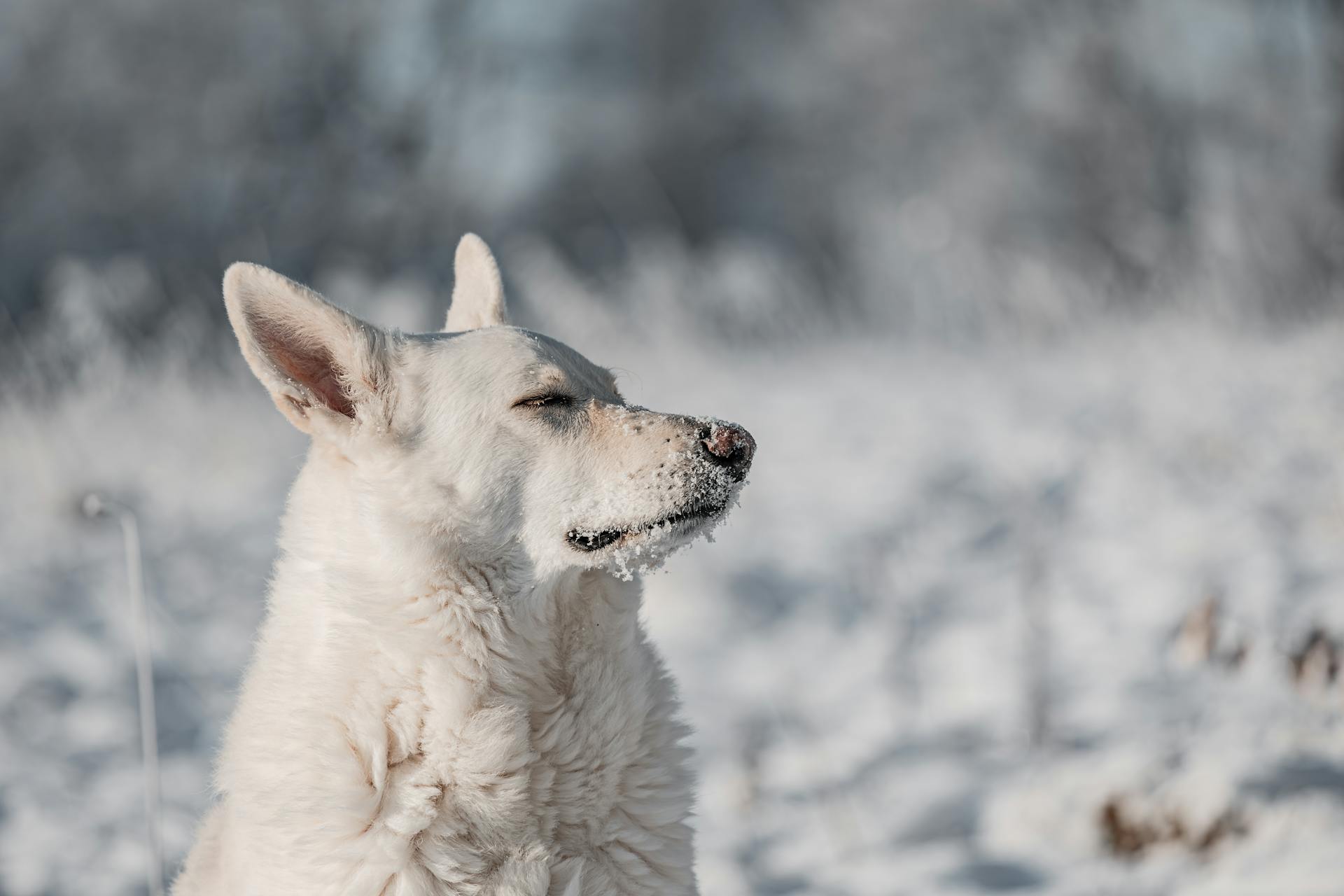
When buying a Malinois Dutch Shepherd mix, it's best to look for breed-specific rescues to avoid loads of vet bills from uncontrolled sources.
Regular veterinary check-ups are essential for your Dutch Shepherd's health and well-being, just like with any other dog.
Their nails grow fairly quickly and need to be trimmed as needed to avoid cracking, splitting, or injury.
You should check your Dutch Shepherd's ears at least weekly and clear out any debris or wax buildup to prevent infection.
Their teeth should be brushed regularly, and your veterinarian can provide tips on how to do this properly.
Dutch Shepherds need at least one good, long walk per day, and some vigorous play sessions to keep them mentally and physically stimulated.
If they're not getting enough exercise, they may become bored, anxious, and destructive.
Grooming
Grooming is an essential part of Dutch Shepherd care, and it's not just about looking good - it's about staying healthy.
Dutch Shepherds have three different coat types: short hair, wire hair, and long hair. Short hair has a woolly undercoat, while wire hair has a woolly undercoat and is very dense and course. Long hair is straight and a bit harsh to the touch.
You'll need to brush your Dutch Shepherd regularly to remove loose or dead hairs, especially from the undercoat. Short and long haired coats require regular brushing, while wire haired coats should be groomed by a professional twice a year.
Bathing your Dutch Shepherd is less complicated than you might think - they only need a bath every 3-6 weeks, unless they get into some kind of mess. During shedding season, you'll need to brush out your dog every day to get rid of loose, dead hair.
Don't forget to check your Dutch Shepherd's ears and teeth regularly - weekly ear checks and daily teeth brushing are a must. And, of course, clip those nails once a month to keep them from getting too long.
On a similar theme: Short Haired Dutch Shepherd
Nutrition
Proper nutrition is essential for your dog's overall health and wellbeing. Choose a high-quality dog food that meets the nutritional standards of the Association of American Feed Control Officials.
A Dutch Shepherd's diet should be formulated for an active, mid-to-large size dog with somewhat high energy levels. You should ask your veterinarian or professional nutritionist for advice on which foods and portions are best for your individual dog.
A high-protein dog food can help build muscle and sustain your dog all day long. Look for the statement on the package that says the formula meets the nutritional standards of the Association of American Feed Control Officials.
Feed your puppy puppy food, adult dogs adult food, and senior dogs senior food. Following the feeding guidelines on the bag is the best way to make sure that you are feeding the correct amounts to prevent excess weight gain.
Counting calories isn't usually necessary with this super-active breed of dog, but be conscious of how many fatty dog treats you're giving your dog a day. Those treat calories count!
Fish oil supplements can help keep your dog's coat shiny and their skin healthy. Discuss adding them to your dog's diet with your veterinarian or professional nutritionist.
Training and Socialization
Training and socialization are crucial for Dutch Shepherd mixes. These dogs are highly trainable and need intensive training and physical activity to prevent behavioral issues.
Intensive training sessions are a must, but they should be short and active to keep your dog engaged and eager to learn. Dutch Shepherds excel at following directions and are quick-witted, making them highly trainable.
Socialization is also vital, especially since these dogs can have aggressive tendencies. Exposing your dog to different sights, sounds, and situations will help them develop into a balanced and well-behaved dog.
For more insights, see: Dutch Shepherd Training
Socialization
Socialization is key to raising a well-behaved Malinois Dutch Shepherd mix. These dogs can have aggressive tendencies, which is what you’d want to see in police and military service dogs, but only if they know when and how to react.
To achieve this, make sure your dog is exposed to different sights, sounds, situations, other dogs, cats, and people. That’s the only way to make sure your dog will develop into a balanced, well-behaved dog.
Daily decompression walks and enrichment activities are ideal throughout the entirety of the dog’s life. These dogs do best with pet parents who are patient and can work at their pace.
Socialization is especially important for Dutch Shepherds, as they are smart and independent, and may try to take matters into their own hands if they aren’t taught what to do and provided structure in their lives.
Getting your dog used to new people, other animals, and situations while they’re a puppy helps bring out their friendly qualities as they grow up. Enroll your dog in puppy school; this is a great way for them to learn how to play nicely with other puppies, and they get to meet other pup parents, too.
Malinois Dutch Shepherd mix puppies, like all Dutch Shepherds, require ample amounts of socialization, training, and activity to keep them focused and set them up for long-term success.
If this caught your attention, see: Alsatian Dog Origin
Exercise Needs
Dutch Shepherds are built for running, endurance, and speed, and they'll keep pace with you on long treks. They need a large amount of exercise to keep them healthy and fit.
To keep your Dutch Shepherd happy and stimulated, aim for one to two hours of exercise each day, which can include a long stroll and/or dog sports like catch or fetch. Daily decompression walks are also essential.
Long walks twice per day are a requirement for Dutch Shepherds. They also need structured activities throughout the week, such as hiking, agility, running, or backyard games.
Dutch Shepherds need mental stimulation, which can be provided through games, puzzles, or training. Toy puzzles are a great way to engage their intelligent minds.
If you don't give your Dutch Shepherd enough stimulation, they can become anxious, destructive, and hyperactive, making them disruptive. On the other hand, with the right exercise and mental stimulation, they'll be your partner in all things athletic and outdoorsy.
Broaden your view: Black Labs Mixed with German Shepherds
Family and Environment
Dutch Shepherds need a lot of space to run and roam, making farms, country houses, and homes with fenced yards in the suburbs perfect for this breed.
They'll get along with other dogs in the household, but may need extra training and socialization to do the same with cats. Dutch Shepherds are also quite loyal to their families, including children, and tend to love humans they are familiar with.
Dutch Shepherds are built to work outdoors, so cold weather and rain aren't likely to faze them. However, they may be sensitive to warm weather, so a hot and humid climate isn't their ideal home.
Identifying Mixed Breed Dogs
Identifying Mixed Breed Dogs can be a challenge, especially if you're considering bringing one home. A crossbreed is created by crossing two pureblooded dog breeds, which can result in unpredictable characteristics.
It's impossible to know what the puppy will look like, which can be both exciting and intimidating for new dog owners. The Malinois Dutch Shepherd mix is a great example of a crossbreed, where the outcome is uncertain.
Genes are unpredictable, and it's impossible to know how they'll pair, making it difficult to anticipate the dog's appearance and personality traits.
Suitability of Dogs for Families
Dutch Shepherds can make great family dogs, but they're not a good fit for every family. They need a lot of mental and physical stimulation, which can be challenging for busy families or those with young children.
If you have an active family with older children who can invest time in playing and exercising with the dog, a Dutch Shepherd can thrive. However, if you're a busy family with small children who can't dedicate hours per week to the dog's needs, it might not be the best choice.
Dutch Shepherds are loyal to their families, including children, and tend to love humans they're familiar with. However, children should be supervised when playing with Dutch Shepherds to ensure playtime doesn't get out of hand.
Dutch Shepherds are usually fine with other dogs and pets, but starting socialization training early is key to helping them stay calm with new people and animals. They may have trouble with small pets, as their herding instincts can kick in, causing them to try to herd or chase them.
Related reading: Are Cattle Dogs Good Pets
Environment
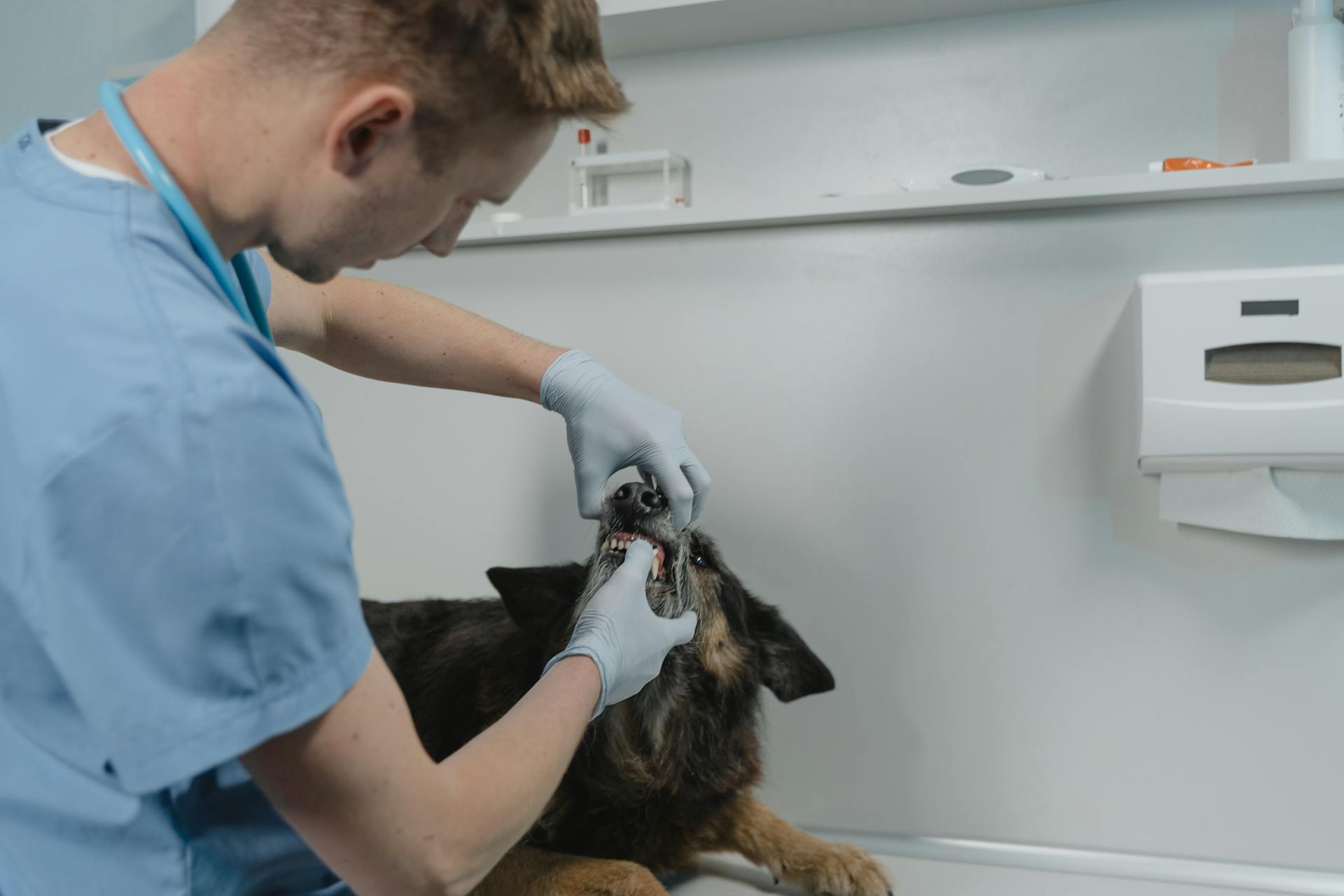
Dutch Shepherds are built to thrive in environments with plenty of space to run and roam. They're perfect for farms, country houses, and homes with fenced yards in the suburbs.
These dogs need a family with an active lifestyle or one that can prioritize getting them the high levels of exercise they need. In other words, they won't do well with a sedentary lifestyle.
Cold weather and rain aren't likely to faze Dutch Shepherds, but some may be sensitive to warm weather, so a hot and humid climate isn't ideal for them.
Breed History and Overview
The Dutch Shepherd mix breed has a rich history that dates back to the Netherlands, where they were originally developed as farm dogs, herders, and guard dogs. They were highly valued for their intelligence, vigilant nature, and ability to learn quickly.
Their ancestors were used for tasks such as herding sheep, pulling carts, and keeping chickens out of gardens. Originally, there was very little to distinguish Dutch Shepherds from German Shepherds or Belgian Shepherds other than coat color.
In the early 1880s, Dutch Shepherds were developed to work as a farm dog, herder, and guard dog, making them a versatile breed that excelled in various roles. They have retained their herding abilities from their days on the farms and are still used for tasks such as herding, police work, and search and rescue.
They are a relatively rare breed, and their numbers have fluctuated over the years due to changes in farming techniques and breeding practices. Despite this, Dutch Shepherds remain popular companions and professional working dogs due to their intelligence, versatility, and trainability.
Check this out: Types of Mixed Breed Dogs
Mali Breed History
The Mali-dutchie breed has a fascinating history, but since it's a relatively new hybrid breed, we need to look to its parent breeds for insight.
The Belgian Malinois, one of the Mali-dutchie's parent breeds, originated in Belgium, specifically in the town of Malines.
For centuries, the Malinois was used for herding sheep all over Europe.
A fresh viewpoint: Belgian Malinois Dutch Shepherd Black
It wasn't until the 19th century that the Malinois had a clear purpose, becoming a popular breed among European police officers due to its excellent tracking skills and herding abilities.
The Malinois made a name for itself as an intimidating and impressive asset to any team, with some photos from a 1903 police dog trial showing the dogs scaling 10-foot ladders with ease.
The breed disappeared from the US in 1939 due to a lack of interest, but thankfully made a comeback after World War II when more were imported over.
The Dutch Shepherd, the other parent breed, is also a herding dog with a rich history.
Originally from the Netherlands, the Dutch Shepherd was primarily used on farms as a sheep dog, guardian, and cart puller.
The breed's skills made it irreplaceable for farmers and kept the Dutch Shepherd in high demand for quite a few generations.
By the 1900s, the need for sheep herding had all but disappeared in the Netherlands, but the Dutch Shepherd was adapted to work for the police force and even as seeing-eye dogs.
The breed's high intelligence and ability to learn quickly made it excel in these jobs, just like it did at herding.
If this caught your attention, see: Dutch Shepherd Police
Breed Overview
The Mali-dutchie breed is a fascinating hybrid that combines the best traits of the Belgian Malinois and the Dutch Shepherd. They're a large and squarely built breed, with males reaching up to 26 inches and 80 pounds in weight.
Their athletic build and strong lines make them intimidating yet graceful, perfect for jobs like search and rescue or herding. The Mali-dutchie's coat is an all-weather coat that allows them to endure various weather conditions, but they tend to prefer cooler weather.
This breed is not for the faint of heart, as they require a lot of physical and mental stimulation to prevent destructive behavior. They need a job or a purpose to keep them engaged, which can be challenging for inexperienced owners.
The Mali-dutchie is extremely loyal and affectionate to their humans, but they can be protective and may develop aggression issues if not properly trained and socialized. They're great with other dogs and children, but it's essential to supervise them, especially when younger or improperly socialized.
Curious to learn more? Check out: Kuvasz Breed
Their herding tendencies can kick in, and they may bark to alert their humans to suspicious activity. Despite their high energy levels, the Mali-dutchie can make excellent companions for active individuals or those with disabilities, provided they receive proper training and exercise.
Here are some key characteristics of the Mali-dutchie breed:
As with any breed, it's essential to research and understand their needs and characteristics before deciding to bring one home. With the right owner and proper care, the Mali-dutchie can thrive and become a loving and loyal companion.
Similar Breeds to Mali
If you're considering bringing a Mali-dutchie into your family, you might be wondering what other breeds might be a good match. The Mali-dutchie is a cross between a Maltese and a Dutch Shepherd, so breeds with similar characteristics might be a good fit.
The German Australian Shepherd is a breed that shares many similarities with the Mali-dutchie, with a similarity rating of 98%. This breed is known for its intelligence and trainability, making it a great choice for active families.
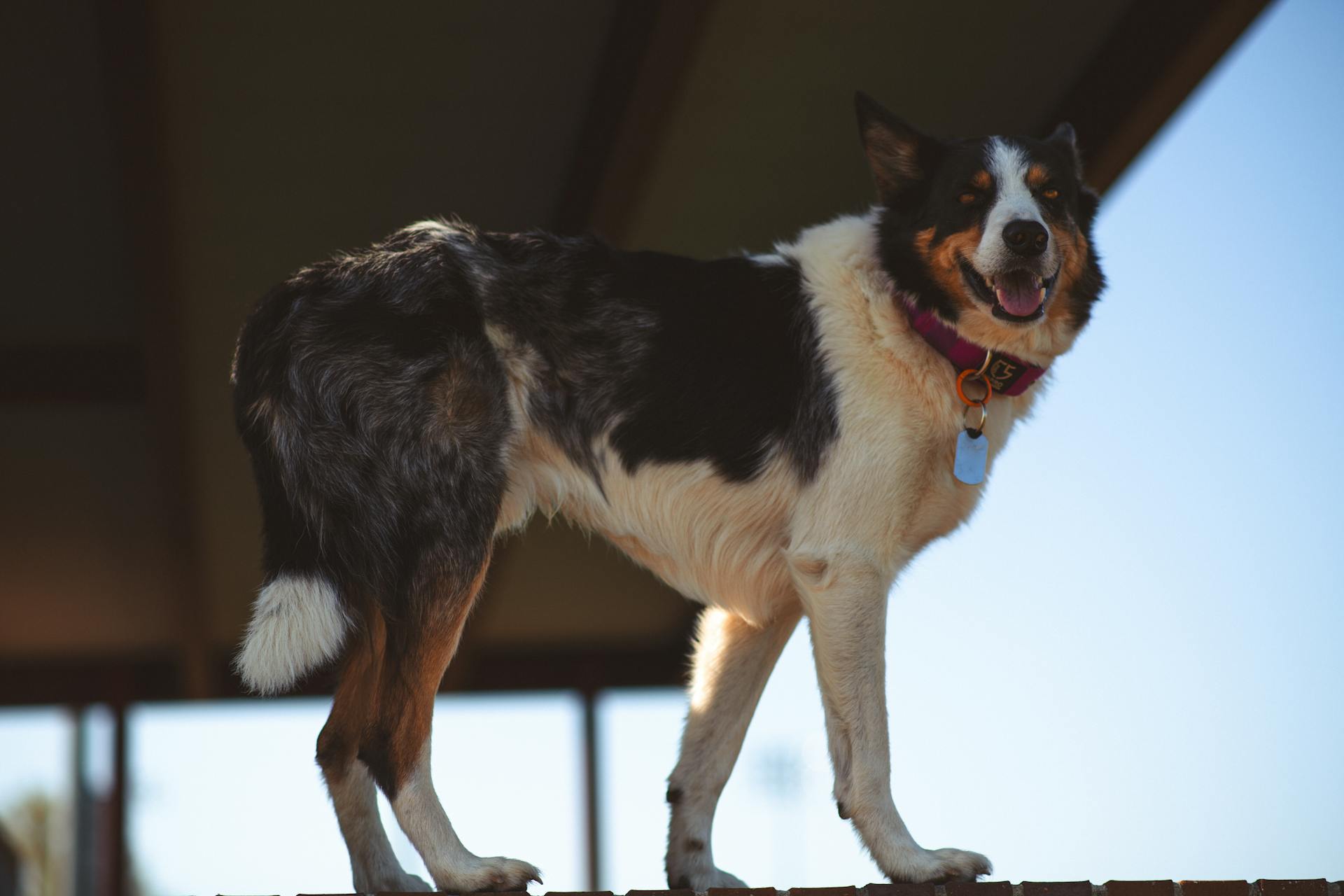
The Bluetick Coonhound is another breed that is similar to the Mali-dutchie, with a similarity rating of 97%. This breed is known for its energetic and playful personality, making it a great choice for families with children.
If you're looking for a breed that is similar to the Mali-dutchie in terms of its physical characteristics, the Pointer Bay might be a good choice, with a similarity rating of 97%. This breed is known for its athletic build and short coat.
The Golden Boxer and Huskita are also breeds that are similar to the Mali-dutchie, with similarity ratings of 97%. These breeds are known for their friendly and outgoing personalities, making them a great choice for families who want a breed that is easy to get along with.
Here are some breeds that are similar to the Mali-dutchie:
- German Australian Shepherd (98% Similar)
- Bluetick Coonhound (97% Similar)
- Pointer Bay (97% Similar)
- Golden Boxer (97% Similar)
- Huskita (97% Similar)
European Wild Dogs
European Wild Dogs were the ancestors of the Dutch Shepherd breed. They were bred from local dogs to herd sheep in Medieval Europe. In fact, the Dutch Shepherd still bears a resemblance to the wolf, as noted by a dog fancier in 1910. This is a testament to the breed's wild roots. The Dutch Shepherd is a relatively new breed, but it maintains strong connections to its ancient ancestors.
Three Little-Known Facts
In the world of dog breeding, there are some interesting facts that might surprise you. The Belgian Malinois and Dutch Shepherd are two breeds that can be crossed to create a unique puppy.
The Belgian Malinois can be bred with a female Dutch Shepherd, as seen in the experiences of a Mali-dutchie Owner. This cross is possible and has been done by some breeders.
The dominant breed in a Malinois-Dutch Shepherd cross is not explicitly stated, but it's worth noting that the owner of a Mali-dutchie is concerned about the value of their puppy's heritage. This suggests that the breed of the puppy's parents can impact its value or worth.
The owner of a Mali-dutchie is curious about the value of their puppy's heritage, which is a valid concern for any dog breeder.
Curious to learn more? Check out: Dutch Shepherd vs Malinois
Frequently Asked Questions
Are Dutch shepherds good dogs?
Dutch Shepherds are highly intelligent and loyal dogs, making them a great fit for active families and individuals who can provide regular exercise and mental stimulation. With proper care, they can thrive and excel in various activities.
How big does a Dutch Shepherd get?
A Dutch Shepherd typically weighs between 50-70 pounds and stands 22-25 inches tall at the withers. Their size can vary slightly depending on their coat type.
How do I know if my dog is a Dutch Shepherd?
Check for a rough, harsh outer coat and a dense undercoat, with distinctive eyebrows and less developed hair on the cheeks and ears, to determine if your dog is a Dutch Shepherd
Featured Images: pexels.com
